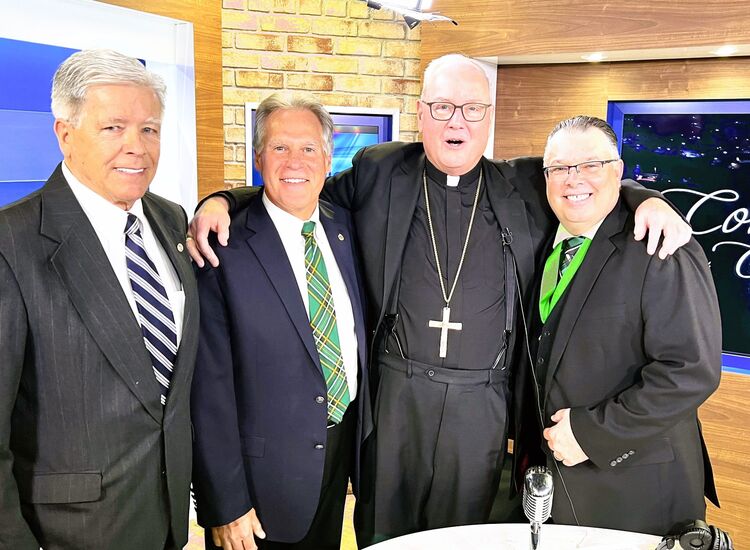By Peter McDermott
For all our connections to the NYPD, it was a Greek-American lieutenant that captured Irish hearts. Adult viewers had "Kojak" regularly besting the main evening news as the top-rated program in Ireland. But the kids were also watching the detective.
As mentioned last time, Fintan O'Toole has gone to bat for the crime writers saying that they're producing the nearest that Ireland has to realist literature, and arguing further in the Irish Times that the "dislocations of rapid social and technological change experienced in boomtime Ireland" made the new wave almost inevitable. I prefer my "Kojak" theory: some of the kids grew up to be writers.
That doesn't exclude any other hypothesis. I'd be interested to know if anyone has suggested that the interest in mystery is somehow connected to the majority religion. After all, Arthur Conan Doyle and Alfred Hitchcock were Catholics of mainly Irish extraction. But then Raymond Chandler, a hero to Declan Burke and some of his colleagues, was born to Protestants from Waterford. And Scandinavia, that other prodigious source of crime fiction, is hardly a hotbed of Papism.
The novelist and blogger Burke (crimealwayspays.blogspot.com.) was asked by the Echo if he and his compatriots have a particular sensibility. He said via email: "I actually don't believe there's one factor the Irish crime writers have in common, or one that marks them out from their colleagues on the international stage - and that, for me, is a very good thing. Irish crime writers are writing police procedurals, private eye stories, high-concept thrillers, historical who-dunnits, gritty urban noir, cosy mysteries ... it covers the full gamut of crime writing."
Burke continued: "It's that diversity from a relatively small number of writers that I find most pleasing about the recent upsurge in Irish crime writing, as well as the fact that there's no concession made to the Irish settings. These are novels written to be relevant to contemporary Ireland, certainly, but they're capable of competing with the best the international stage has to offer."
If the readers on New York's subway trains are anything to go by then "The Girl with the Dragon Tattoo," by the late Stieg Larsson, is the book of the moment. Here's hoping that someday at least one of our Irish crime writers will make a similar splash, and also still be around to bask in the glory. [PHOTO BY PHOTOCALL]
'Ulysses' in age of Oprah
In his "'Ulysses' and Us: The Art of Everyday Life in Joyce's Masterpiece," Declan Kiberd argues that the great novel set 106 years ago today was meant not an as "an esoteric tome for a scholarly few," which includes the UCD professor himself, but "was about and for the common person." If the title hints that the publisher and author have an eye on the self-help market, one can only say: well, why not? Go for it.
Kiberd begins with an account of "How 'Ulysses' Didn't Change Our Lives." He says that the work became a cause for the English departments that were springing up in the decades after its publication. Joyce himself, though, wasn't "forbiddingly learned" (I seem to recall reading, however, that he could speak or read 17 languages).
A positive review in Publishers' Weekly recommends without apparent irony that "Kiberd's take on 'Ulysses' should be on every undergraduate syllabus that includes Joyce's epic work..."









